NRL 2022: Craig Young a victim of social snowflakes, players can’t be trusted in CBA negotiations
Social snowflakes have claimed the scalp of another good man, writes Paul Kent, with a club great sacked for simply standing by a mate.
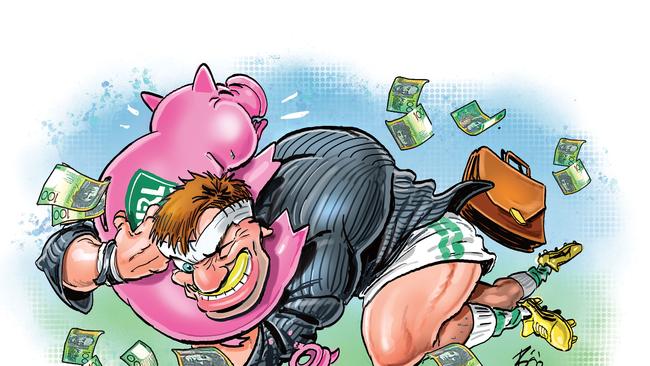
Opinion
Don't miss out on the headlines from Opinion. Followed categories will be added to My News.
The social vigilantes have struck again. The Woke Wowsers who measure everything in scalps.
St George Illawarra lost a good man during the week when chairman Craig Young stepped down after the vigilantes campaigned for him to quit or be sacked after his court reference for disgraced footballer Brett Finch.
Young made the mistake of using a club letterhead.
It was a questionable decision given the charges Finch pleaded guilty to.
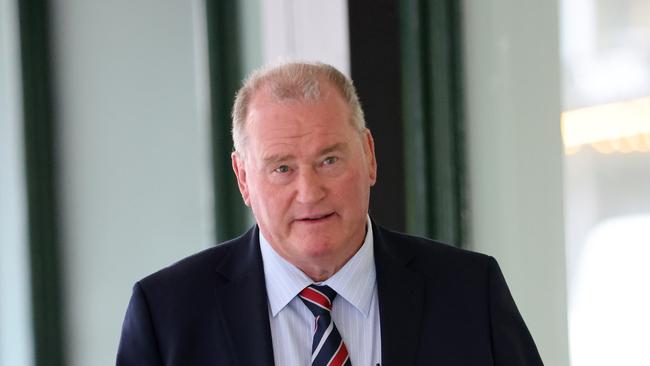
At least one other high-profile rugby league figure knocked back a request to write Finch a character reference and, at the least, is still working.
Young played footy with Finch’s father Robert and later worked with him at the Dragons, a history that goes back almost 50 years.
His compassion for Robert is deep, one shared by many around the game.
The stress Brett Finch has imposed on his family has been long and torturous. Many who know them well worried about Robert and the family through many of those years.
There was no upside for Young to write the reference, other than to support a lifelong friend, yet the social vigilantes have attacked him for it.
Yet isn’t that the kind of man you want to call a friend? And, by association, the kind of man you want leading your football club?
One willing to take a knock for a teammate? To stick beside you during the tough times?
No, not according to the flakes.
They wanted a scalp and they finally got it.
And shame on them.
NRL PLAYERS THE LAST PEOPLE TO LOOK AFTER THE GAME
Cheap threats and the puffing out of the chest are again back in business, otherwise known as negotiations for the Collective Bargaining Agreement between the NRL and its players.
The NRL stood accused this week of delaying the negotiations and, worse, of failing to acknowledge a list of questions the clubs sent their way.
Such was the insult the RLPA piled on and threatened to send a batch of highly regarded players into the next round of negotiations.
Yes, it is a delirious world sometimes.
Truth is, if the NRL gives the players and the clubs what they currently want in negotiations the NRL won’t even get their pants handed back at the end of it.
Already the offer to the clubs is $5 million above the salary cap, which will jump significantly.
If a club can’t make itself profitable with this kind of headstart then it might be time to get out of the business.
It kicks up a gear when the players get involved.
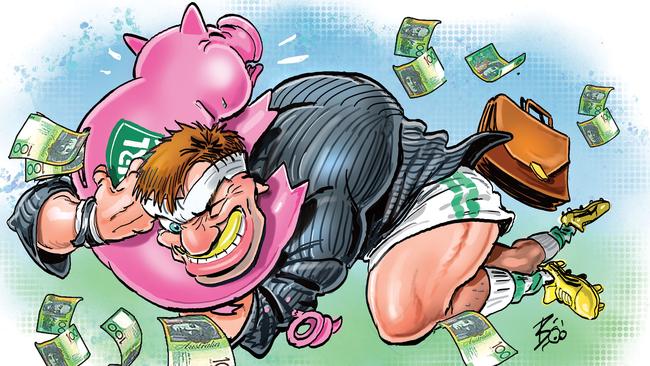
The players also want a seat on the ARL Commission and to also have veto rights on such important matters as rule changes, code of conduct, drug policy, welfare, wellbeing and education, the season structure and how many days of holiday they should get every year.
They want funding put in place for current players to call on in future years, when their knees start to crumble and their backs stiffen, or their memory fades.
Inmates, here, have the asylum.
In a perfect world with honest intentions few would have a problem with any of this.
But the players can’t be trusted. They break promises like newly elected politicians.
The NRL and RLPA have come out of the past two CBA negotiations conceding not a lot was left in the can following negotiations and that grassroots would be compensated the next time they sat at the table.
This is the most crucial aspect in the game’s future and twice now the players have negotiated against it, making promises for next time.
And their demands show no indication they will remedy it this time.
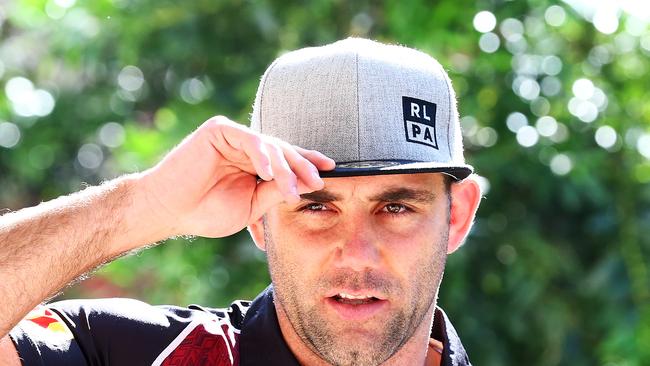
In that time country footy teams have died by the dozens. AFL posts are sprouting like weeds across country NSW.
The bush footballers, the A-grade footballers in the cities, are all being ignored and overlooked.
NRL participation figures provide a false hope, the hidden details revealing touch football registrations are now included.
After the last CBA negotiations Cameron Smith, the Australian captain and RLP general president, spoke of the players becoming genuine partners in the game and their intention to help the game overall.
That was 2017, yet so far the players have shown no appetite this time around to look after the game they came from, junior footy.
This, with the reality that the only way players will be successful in their current demands is if the NRL drastically cuts spending in NRL operational expenses, which is already the lowest of any major sport in Australia, and grassroots funding. Also, no money would be left for future investments.
Covid, it seems, has taught the players nothing.
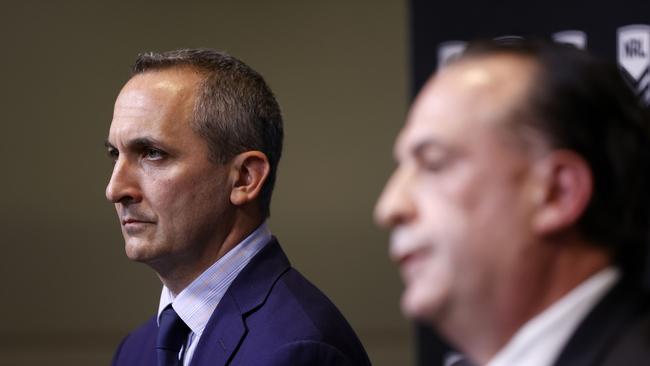
The game was a minute to midnight away from going broke during Covid.
Few realise the size of the job ARL Commission chairman Peter V’landys and chief executive Andrew Abdo did to rescue the game.
When Covid shut sport down in 2020 the NRL and AFL both codes were hit hard.
Clubs were laying off staff. Players took pay cuts, like many workers around the country.
The NRL shaved tens of millions from its budget.
In the background sat a private agreement between the NRL and the AFL, for the good of the country it goes, that they would put their sporting differences aside and resume their competitions in September once the Covid isolation was past.
Help keep the country safe.
Only problem was, the NRL could not afford it. Only five minutes was necessary examining the NRL’s books to understand that.
The AFL negotiated a $600 million loan from the banks, there only in case of emergency, but had to put up Marvel Stadium as collateral. The AFL owns the stadium.
The loan was enough for the AFL to fund the clubs through any shortfall until the September return if they needed it.
The NRL tried to negotiate its own loan for a measly $30 million but got knocked back by all the banks. The banks feared the NRL was not financial enough to pay back the loan and none of them wanted to be the bank that shut down rugby league, unable to pay its debts.
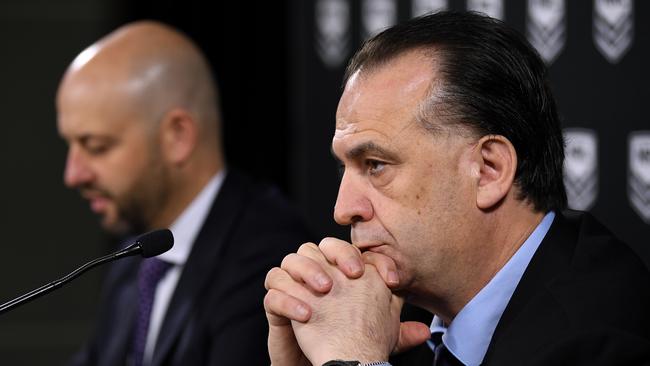
Clubs were losing collectively about $33 million a year at the time. The game had no assets, owning not much more than a packet of pencils.
A cynic might suggest the AFL was aware of this all the time and, knowing the NRL would struggle to meet its payments until September, set the agreed date knowing they would return against only half an NRL competition.
V’landys certainly spotted it and famously ordered the game return much earlier, on May 28. At least half a dozen clubs were saved because of that decision.
Instead of bolstering the game, though, in case of more hardship, the money grab is on again.
The clubs now receive record funding and almost all are profitable.
South Sydney Rabbitohs, owned by two billionaires and an actor, might be the greediest club of all.
The Rabbitohs are driving the deal for more funding to clubs with all sorts of clever arguments.
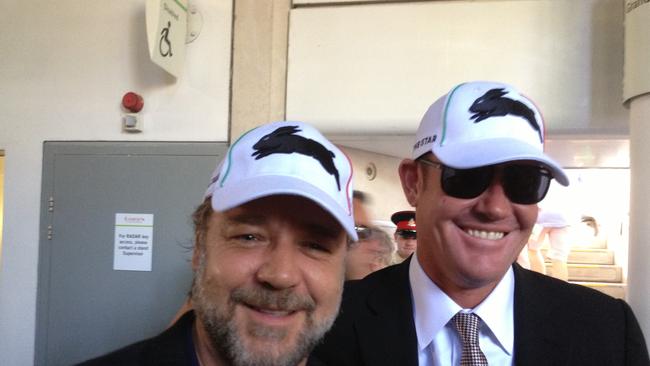
When the clubs met recently RLPA boss Clint Newton was also invited to sit with them. Here it was, cards revealed; the employer (clubs) and the boss of the employees (players) in cahoots against head office in union negotiations.
This set off a four-bell alarm around the game but it might have backfired on the Rabbitohs and their plans.
Some clubs walked away dismayed Newton was invited to the meeting and have begun to splinter and act for themselves.
They have joined the NRL in suspecting an ulterior motive to their push for more club funding: that the businessmen who own the club are looking for a return on their investment, to pull some money out of the game and put it back into their bank accounts.
Rabbitohs fans are still being played for suckers, it seems, as they have ever since they voted their club away.
They sold the farm back then and now their profits will go into the pockets of their owners instead of back into their juniors, as seems to be the plan across the NRL nation.
And somewhere in there Cameron Smith, now retired, came out earlier this year on his radio show and said he hoped more money would be put into grassroots, where it was desperately needed.
Welcome to the real world.





